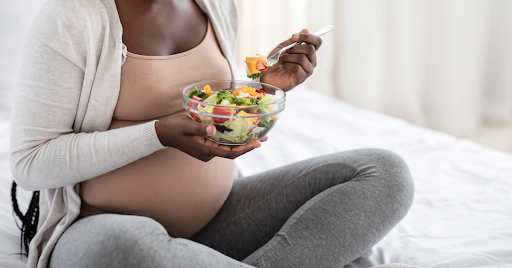Traveling elicits different emotions in people; some love it, while others lack those fond emotions. It’s not uncommon for travel to generate feelings of stress, and when you factor in pregnancy, you might feel inclined to avoid venturing beyond the comfort of your home altogether. However, it’s important to recognize that traveling while pregnant doesn’t have to be a stressful experience.
Traveling While Pregnant
Whether you are traveling for work or pleasure, certain preparations can reduce discomfort while you are on the way to your destination. Here at Raleigh OB/GYN, we recommend the following tips to help make traveling while pregnant a pleasant experience.
1. Take Timing Into Consideration
Since pregnant women are more likely to face medical emergencies during the first and third trimesters, the ideal time to travel is during the second trimester. The American College of Obstetrics and Gynecology (ACOG) suggests anytime between 14 to 28 weeks of pregnancy. During this phase, your morning sickness has probably subsided, and you can still move around fairly comfortably. After 28 weeks, it often becomes more difficult to move or to sit for long periods of time.
2. Fill Your Carry-On with Essentials
They say preparation is the key to success, and this certainly holds true when it comes to traveling during pregnancy. There are a variety of essential items you should pack in your carry-on bag. Be sure to include items such as
- A refillable water bottle
- An extra pair of underwear
- Snacks like nuts or dried fruit
- Medication such as Tylenol in case you experience any headaches, backaches, or pain in general.
- A supportive pillow or cushion
- Wet wipes or hand sanitizer
Although there is no one list that fits all for traveling while pregnant, making sure you have some of the essentials can help you to feel more at ease throughout the trip.
3. Dress Appropriately
Comfort should be your top priority when you are trying to figure out what to wear before your trip. A belly support band can help take pressure off your lower back while you’re standing in security lines, walking across airports, and carrying luggage. In addition to a belly support band, wear comfortable shoes that easily slip on and off and a light cardigan to keep yourself warm in cold airports but comfortable if a hot flash arises.
4. Pack Light
Although it is easier said than done, packing extra light is important. By packing light, you won’t have to lift heavy suitcases and bags and put them onto an airport scale or overhead bin. Try to pack multi-functional items and consider purchasing beauty products and other items once you arrive at your destination. By packing light when traveling while pregnant, you can reduce the amount of stress put on your body.
5. Don’t Be Afraid to Ask for Help
If you are traveling alone, ask for help whenever you need it. Ask the flight attendant for a snack and water bottle if you are feeling faint. If you are unable to lift your bag, find another passenger around you to help you out. Even if you are traveling alone, it is important to ask for help when you need it when traveling while pregnant.
6. Speak With Your OB/GYN
Before planning or going on your trip, it is important to talk about your travel plans with your OB/GYN or other health care professional. You can discuss whether it is safe for you to travel. ACOG suggests travel is not recommended for women with certain complications, including preeclampsia, prelabor rupture of membranes (PROM), or preterm labor. Your healthcare provider may also want to ensure that your vaccinations are up to date before you embark on your travels.
Although being in a plane or a car, or any form of public transportation isn’t always favorable during pregnancy, there are certain measures you can take to make it more bearable. Here at Raleigh OB/GYN, we are dedicated to helping you understand every step of your unique pregnancy journey. If you have questions about traveling while pregnant, set up an appointment to talk to your doctor. You can schedule an appointment through our website or give us a call at (919) 876-8225.







